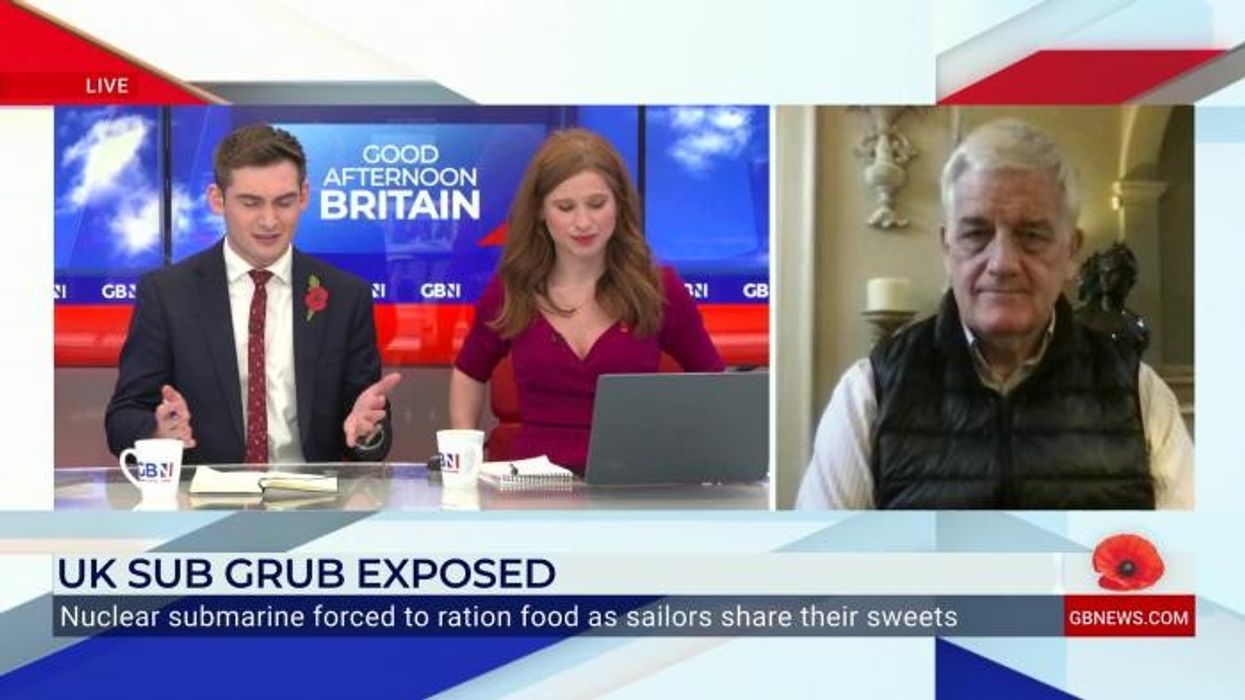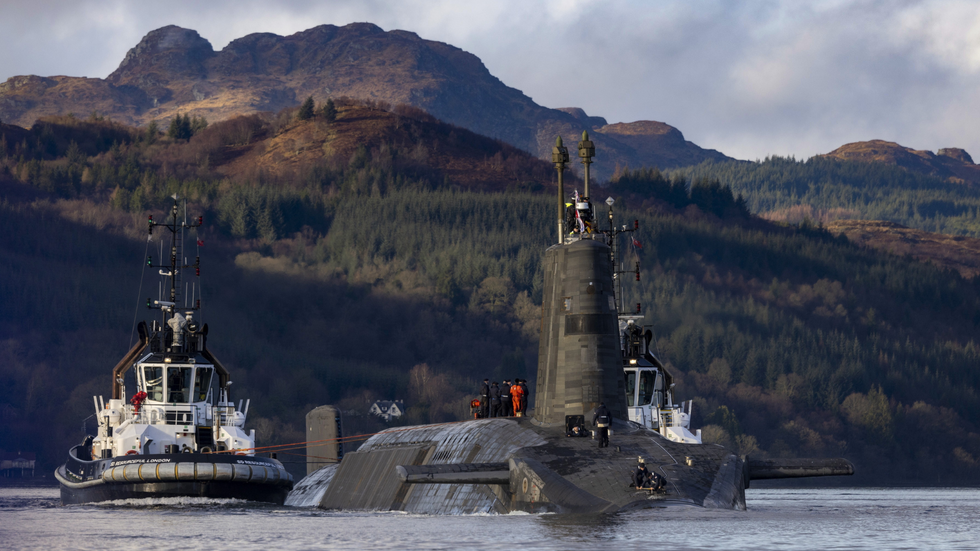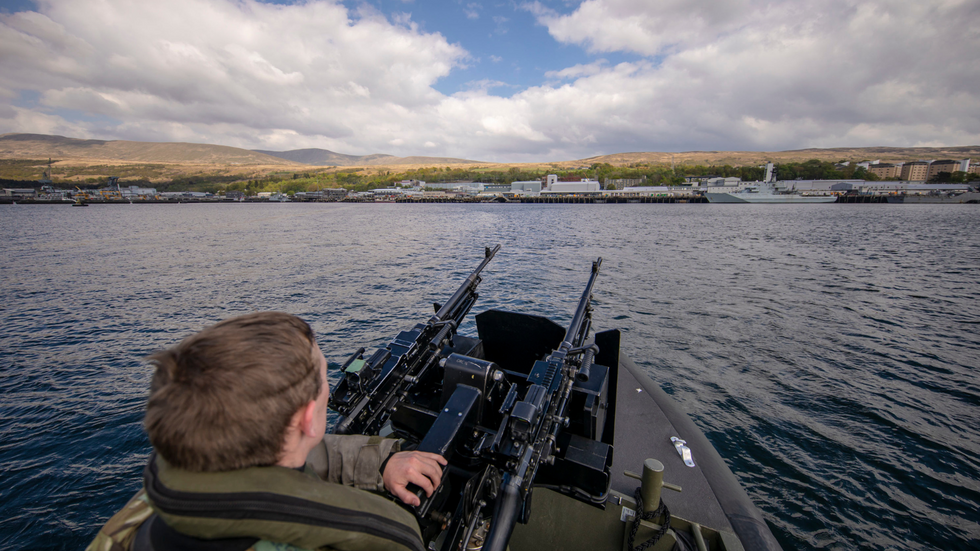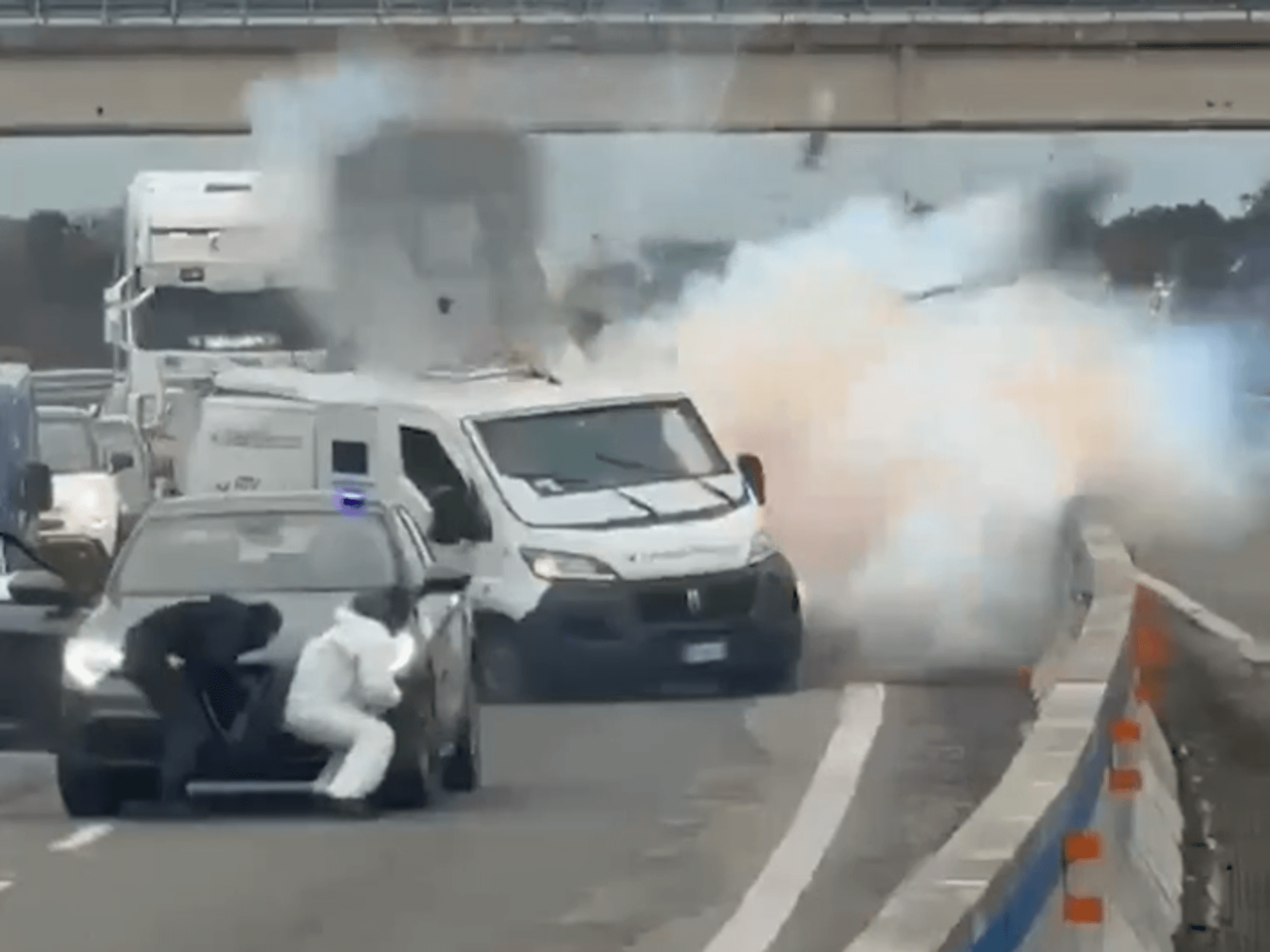Concerns raised over 'serious nuclear incident' at Faslane submarine base - home to Britain's Trident fleet

WATCH: Rear Admiral Chris Parry discusses reports of a nuclear submarine running so low on food during a a six-month patrol that its sailors were ordered to share rations
|GB NEWS
There were 19 incidents of varying severity at the naval base between April and January this year
Don't Miss
Most Read
Trending on GB News
A "serious nuclear incident" took place earlier this year at the Scottish naval base which houses Britain's Trident submarines, it has emerged.
The Category A event happened between January and April at HM Naval Base (HMNB) Clyde on Gare Loch in Faslane.
According to the Ministry of Defence (MoD), a Category A event is the most serious and has an "actual or high potential for radioactive release to the environment".
**ARE YOU READING THIS ON OUR APP? DOWNLOAD NOW FOR THE BEST GB NEWS EXPERIENCE**
However, the government department has claimed the incident in question did not pose a risk to the public, nor did it result in any radiological impact on the environment.
HMNB Clyde, known commonly as Faslane, is the Navy's main base in Scotland, and the core of the Submarine Service, including the UK's Trident System.
Now concerns are being raised over the maintenance of the weapons at the base after the Category A event, which was first reported by The Herald.
The incident was revealed by Defence Procurement Minister Maria Eagle after she was asked to provide figures regarding Nuclear Site Event Reports (NSERs) at the Faslane and Coulport naval bases.

PICTURED: Vanguard class nuclear submarine HMS Vengeance in Gare Loch, after departing HMNB Clyde in Faslane
|PA
NSERs give information regarding incidents at nuclear facilities which are categorised depending on their impact and significance to safety.
Ms Eagle revealed there had been one Category A incident at Faslane between January 1 and April 22, as well as two Category B, seven Category C and four Category D events.
She added that another five events had been deemed "below scale" as they were less serious.
Regarding Coulport, home to the UK's nuclear missiles and warheads, she said there had been four Category C and nine Category D incidents during the same time.
MORE ON NATIONAL SECURITY:

The incident was revealed by Defence Procurement Minister Maria Eagle
|PA
The Scottish National Party (SNP) has demanded the Government provide an explanation for the "catalogue of failures", including a separate incident nearby.
Responding to a question asked by SNP MP Dave Doogan, Ms Eagle said: "I cannot provide specific detail for the events as disclosure would, or would be likely to, prejudice the capability, effectiveness or security of any relevant forces."
She added: "I can assure the honourable member that none of the events listed in question 49938 caused harm to the health of any member of staff or to any member of the public and none have resulted in any radiological impact to the environment."
Instead, she claimed NSERs "are raised to foster a robust safety culture that learns from experience, whether that is equipment failures, human error, procedural failings, documentation shortcoming or near-misses".

PICTURED: A Royal Marine patrols the waters at HMNB Clyde
|PA
It comes after it was revealed that several old pipes had burst, leading to the release of radioactive water from the base in Coulport into Loch Long.
SNP Deputy Leader Keith Brown said: "Nuclear weapons are an every-present danger and this new information is deeply worrying.
"With repeated reports of serious incidents at Faslane and now confirmed radioactive contamination in Loch Long, it's clear there is a direct threat to our environment, our communities, and our safety.
"Worse still, the Labour government is refusing to provide any details about the Category A incident, or the full extent of the contamination, including who could potentially be affected."
He added: "While Westminster ploughs billions of public money into weapons of mass destruction, the SNP is focused on building a better Scotland."
A spokesman from the MoD said: "We place the utmost importance on handling radioactive substances safely and securely.
"Nuclear Site Event Reports demonstrate our robust safety culture and commitment to learn from experience.
"The incidents posed no risk to the public and did not result in any radiological impact to the environment. It is factually incorrect to suggest otherwise.
"Out Government backs our nuclear deterrent as the ultimate guarantor of our national security."
More From GB News










